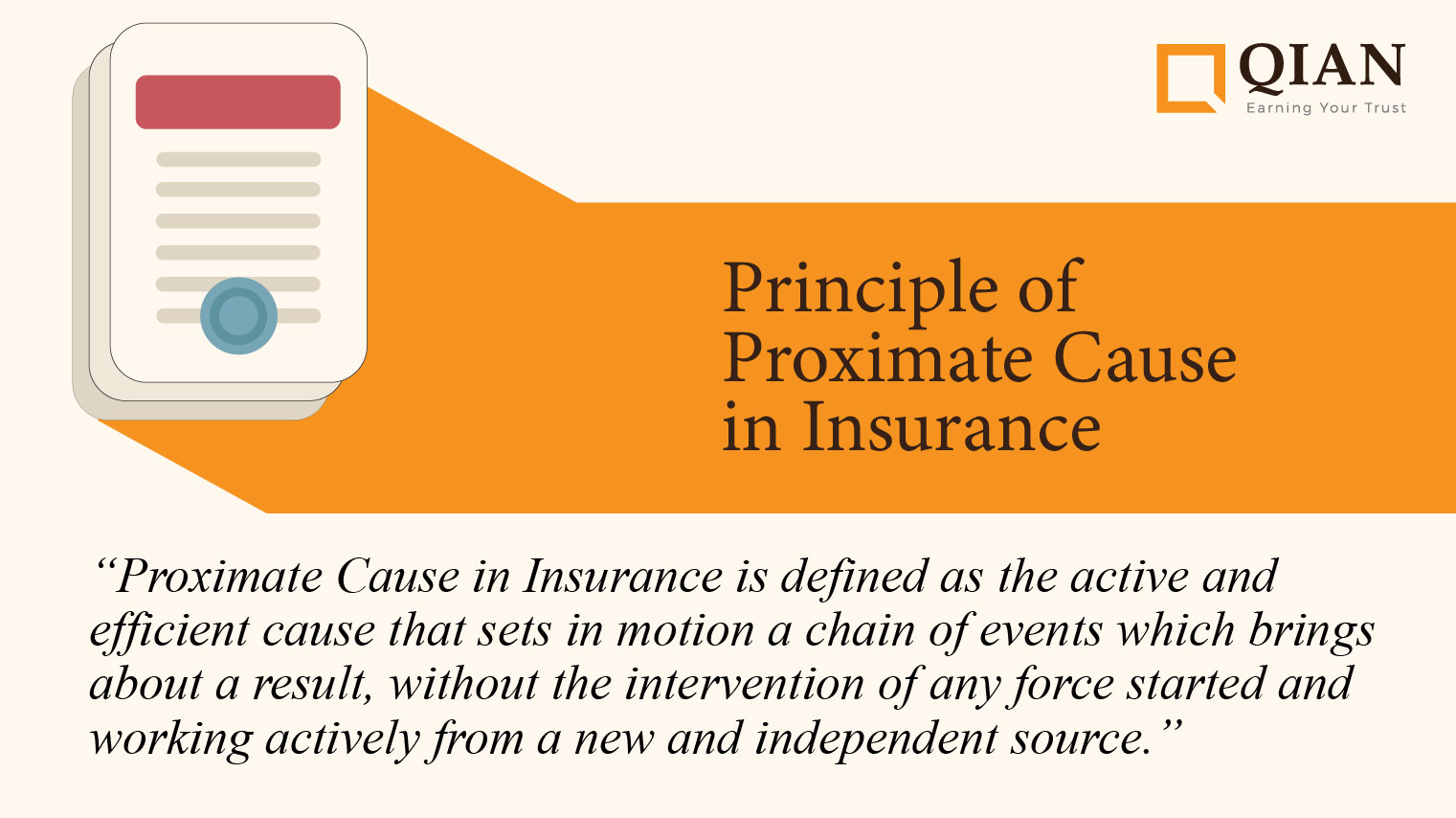
Insurance ;
What is Principle of Proximate Cause in Insurance?


What is Proximate Cause in Insurance? - Definition
Proximate Cause in Insurance is defined as the active and efficient cause that sets in motion a chain of events which brings about a result, without the intervention of any force started and working actively from a new and independent source. The dominant, effective or operative cause of an event is known as the Proximate Cause. It is the risk which sets the cause of loss in motion. It may not necessarily be the last act in a chain of events nor is it necessary that it has to be an initiating cause. Principle od Proximate Cause is one of the most important principles of Insurance .

Principle of Proximate Cause
When there is a chain of events leading to a loss, it is necessary to determine the Proximate Cause which has led to a loss as that will determine whether the Insurance Claim is payable or not.
If the cause which has caused the loss is not the leading or a dominant Cause, then that cause is not considered as a Proximate Cause, even though that cause may have factually contributed to the loss.
So, when a chain of events has contributed to a loss, it is first necessary to determine as to what event is responsible for the loss. After the Proximate Cause is determined, then it is examined whether the has been caused by an Insured Peril or not. If the loss has been caused by a Peril excluded under the
Insurance Policy
, then the Claim is not payable, even if there are events amongst the chain of events which are responsible for the loss which are caused by Insured Perils. It is only the Proximate Cause of loss which will determine whether the claim is payable or not.
Thus, the Principle of Proximate Cause helps in determining whether the loss is caused by an Insured Peril or not. This helps in deciding whether the Insurance Claim is payable under the Policy or not.
Who has to prove the Proximate Clause of Loss in case of a Claim – the Insured or the Insurance Company?
In case of a Named Perils Insurance Policy, the Insured must prove that an Insured Peril has caused the loss and it is for the Insurance Company to determine that an exclusion applies and the claim is not payable. In case of an All-Risk Insurance Policy, the Insured has to only show that a Fortuitous loss has occurred to the Insured Property and it is for the Insurance Company to examine and determine that an exclusion applies and the claim is not payable.
What if more than one peril is responsible for the loss?
If more than one peril has operated and one or more perils are covered by the Policy, the Insurance Claim is payable.
Example of Principle of Proximate Cause
There was a fire in a warehouse as a result of which the factory workers removed the stocks from the warehouse and kept them in the open outside the warehouse. In some time, there was rain which damaged the stocks outside the warehouse. In this case, Fire is determined to be the Proximate Cause of loss in this case and not rain and hence the Insurance Claim is payable under the Policy.
Conclusion
The Principle of Proximate Cause is one of the fundamental principles of Insurance. Proximate Cause helps us detemine whether the peril causing the loss is covered under the Policy or not, thus, effectively determining whether the loss is payable or not. Qian helps businesses get the best insurance coverages and compare insurance quotes amongst various insurance companies. If you have any questions regarding Insurance, you can reach out to us at insurance@qian.co.in or call us on 022-35134695. We would be glad to assist you.

Umang Shah
Umang is a CFA charterholder and plays a key role at Qian. He helps clients navigate complex insurance needs and creates customized solutions for businesses across industries. His clear thinking and focus on client service have helped make Qian a trusted name in the insurance industry.




